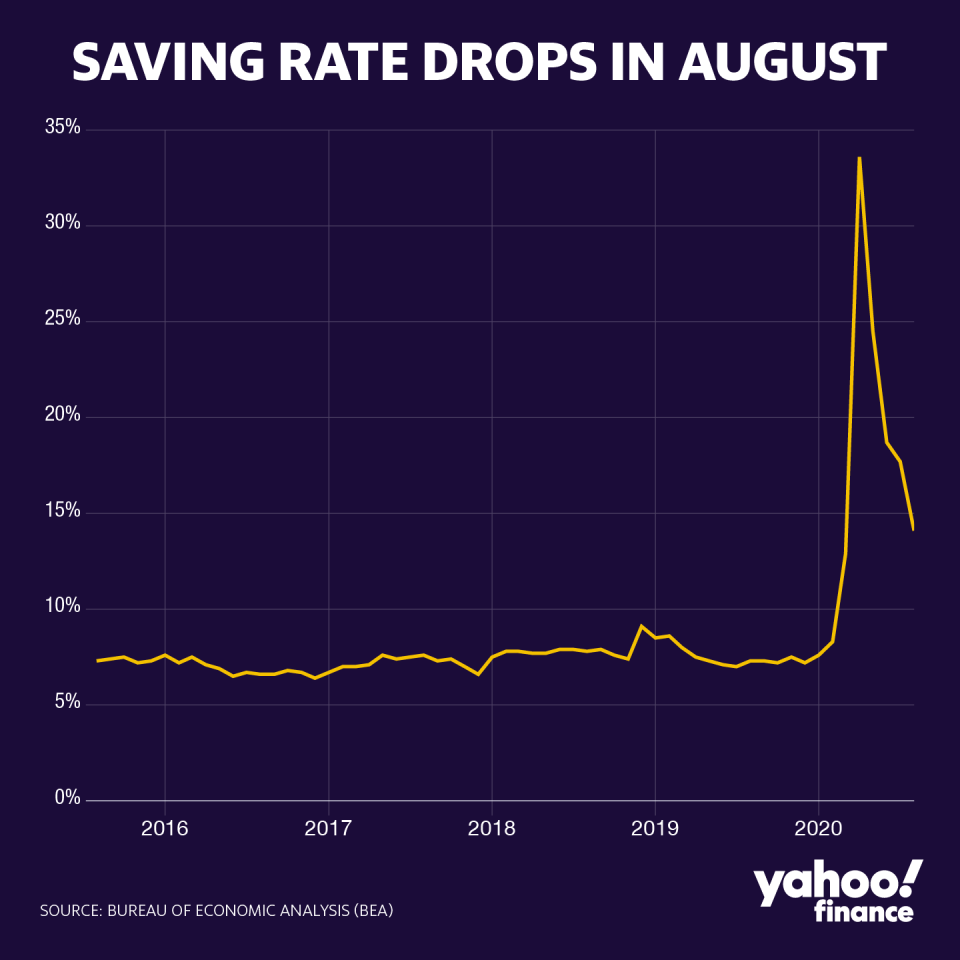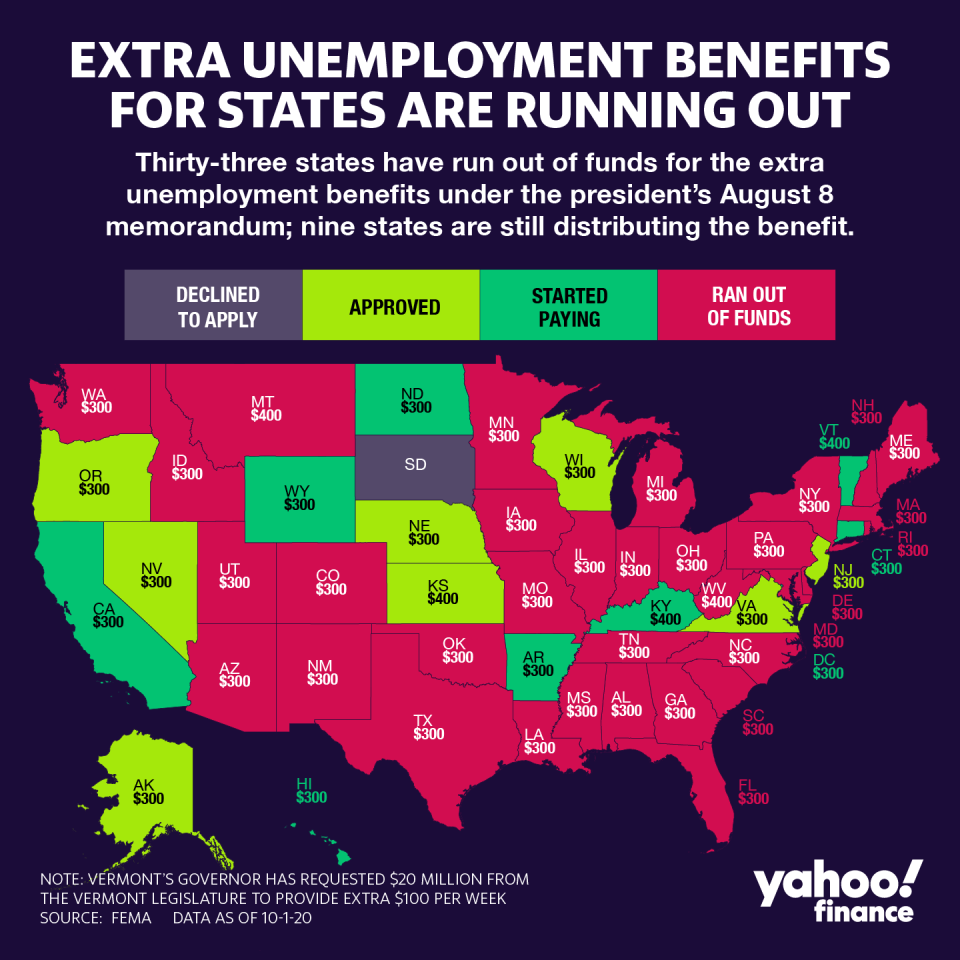Coronavirus stimulus: Americans’ income and savings tumble as government support expires
As the financial boost from the extra unemployment benefits faded in August, so did Americans’ personal income and savings, according to a new government report.
Personal income fell by 2.7% in August, the sharpest fall in three months, according to data from the Bureau of Economic Analysis (BEA). The personal savings rate, which reached a historic high during the pandemic, tumbled to 14.1% from 17.8% in July.
News of the declines come as Democrats and the White House haven't yet reached an agreement on a new stimulus package and as the economy added fewer jobs than expected in September — signaling a further slowdown in the economic recovery.

“It shows what everybody had been warning about, that we were withdrawing their pandemic unemployment insurance too quickly,” said William Spriggs, chief economist at The American Federation of Labor and Congress of Industrial Organizations (AFL-CIO). “That’s really bad.”
Personal income and savings remain above their pre-pandemic levels, but the slow recovery in workers’ wages was not enough to offset the expiration of government support.
Read more: Here’s what you need to know about unemployment benefits eligibility
The extra $600 of weekly unemployment benefits expired at the end of July and was followed by more limited support provided under the Lost Wages Assistance (LWA) program that the president implemented through executive action.
“Households lost over $600 billion in assistance,” Spriggs said. “That was what was propping up personal income.”

‘We're heading for a very bad September’
Unemployment insurance contributed $633 billion to personal income, down by half of its July contribution of $1.3 trillion. At the same time, wages and salaries increased by $119 billion, not nearly enough to compensate for the loss in government support or to reach pre-pandemic levels.
“We're heading for a very bad September,” Spriggs said. “Consumption has to come from income, and the fact that income has fallen means that, eventually, consumption is going to have to fall.”

Consumer spending remains below its pre-pandemic level, down 3.4% from February. While consumer spending has improved since April, the pace of the recovery has decelerated, with spending increasing just 1% in August.
The drop in personal income will soon be reflected in consumption, Spriggs said, with the third quarter showing a smaller rebound than expected.
“After that $600 expired, the consumption level for people at the bottom has probably collapsed,” Spriggs said. “Once they get all the August numbers and they'll start showing the collapse of consumption at the bottom.”
Denitsa is a writer for Yahoo Finance and Cashay, a new personal finance website. Follow her on Twitter @denitsa_tsekova.
Read more:
Follow Yahoo Finance on Twitter, Facebook, Instagram, Flipboard, SmartNews, LinkedIn, YouTube, and Reddit.

 money
money 

